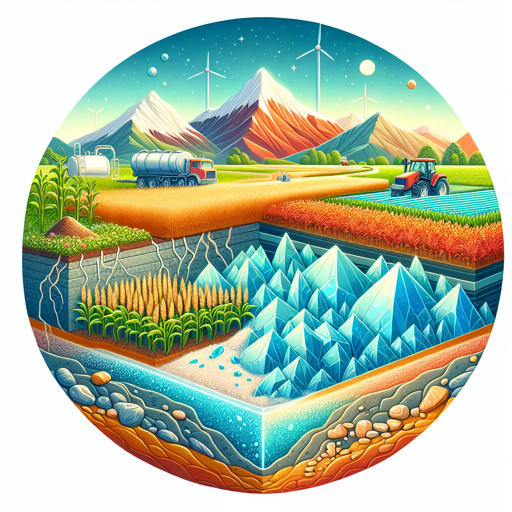Potash: A Silent Hero in Modern Farming
Unearthing the crucial role of potash in enhancing crop yields and improving soil health for sustainable agriculture.

Introduction
In the fascinating world of minerals, potash stands out with its silent, but significant role in modern farming. What might appear as mere salts to the untrained eye, is in fact, a life-giving elixir to plants and crops worldwide. This mineral, formed from evaporated sea beds millions of years ago, has now become a cornerstone of sustainable agriculture.
The Role of Potash in Crops and Soil
Potash, chemically known as potassium chloride (KCl), is one of the three primary nutrients essential for plant growth, the other two being nitrogen (N) and phosphorus (P). It plays a key role in various physiological processes in plants such as photosynthesis, protein synthesis, and resistance to diseases.
Moreover, potash improves water retention in plants, strengthens their root systems, and promotes flowering and fruiting. In the larger picture, it contributes to soil health by enhancing its structure and permeability, leading to improved aeration and biological activity.
The Impact on Crop Yields
An adequate supply of potash can significantly boost crop yields. It enables plants to effectively use water and resist drought, enhancing their productivity. Studies have shown that crops like corn, wheat, and soybeans show dramatic yield improvements when supplemented with potash.
A notable example is that of the Canadian prairie soils, which have been enriched with potash, leading to an impressive increase in wheat and barley yields.
Quote
As Justus von Liebig, the father of the fertilizer industry, once said,
“The soil is the stomach of the plant. It is from the soil that the plant derives a large part of its necessary nourishment.”
This quote aptly underscores the importance of potash in providing the ‘nourishment’ that our soils need to feed plants.
Potash in Numbers
| Crop | % Increase in Yield with Potash |
|---|---|
| Corn | 40% |
| Wheat | 35% |
| Soybeans | 30% |
| Rice | 25% |
This table clearly illustrates the significant increase in yield that potash supplementation can bring to some of the world’s major crops.
Conservation and Sustainability
The mining and application of potash must be done responsibly to protect our environment and maintain the sustainability of our soils. Modern mining techniques have evolved to minimize environmental impact, ensuring the long-term availability of this essential nutrient.
In the farming industry, precision agriculture techniques are being employed to apply potash more efficiently, reducing wastage and environmental harm.
External Reference
For more detailed information on potash’s role in agriculture, you can visit the International Potash Institute.
Conclusion
Potash, a relatively unsung hero in the world of minerals, plays an indispensable role in modern farming. As we strive towards more sustainable agricultural practices, understanding and harnessing the power of potash will remain crucial. It’s a testament to the fact that sometimes, the most profound impacts come from the most humble origins - a lesson that both the mineral and farming worlds can resonate with.